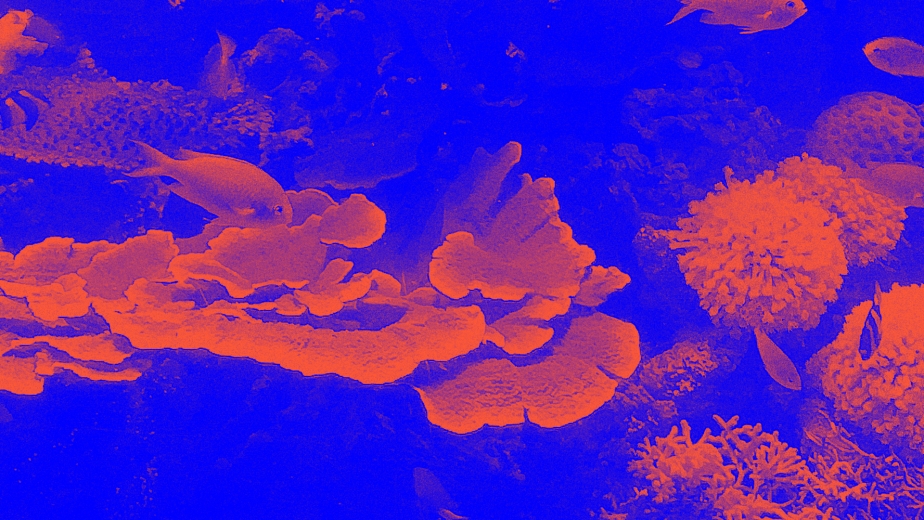
Architecture of the Enclosed Sea: Between Aquaria and Marine Protected Areas
Workshop and public programme co-developed with TBA21–Academy
Architecture of the Enclosed Sea: Between Aquaria and Marine Protected Areas explores the architectural, geopolitical and historical resonance of two spatial techniques for knowing and governing marine life in the modern era. The programme compares the respective characters of aquaria and marine protected areas in ocean cultures and marine conservation. Aquariums are volumetric, indoor bodies of water. Marine protected areas are aerial ocean territories spanning tens to tens of thousands of square kilometres. Both serve scientific, political and entertainment purposes; both are used for nature protection and both are reproductive of certain worldviews. What other common stories can be traced along the scale variance of devices that “box the sea”?
The programme inquires and speculates about the ocean architectures of enclosure at the start of the UN’s “Decade of the Ocean”. It will consider the territorial imaginary of enclosed water and the material artefacts which hold it in place, and talks and events will bring to life the dynamics which overflow the fixed boundaries of boxes – as Perspex walls of a tank or lines on a map. Together we will look beyond these inside/ outside categories of watery space to explore cultural ecologies of ocean conviviality, collaboration and cohesion.
Bringing together historians of science, marine biologists, artists, architects, political ecologists and those working to decolonise marine conservation, Architecture of the Enclosed Sea is a full day symposium that weaves together a multidisciplinary dialogue charting the many interrelations between aquaria and marine protected areas. It invites participation from concerned land dwellers, ocean and aquaculture farmers, as well as those from the policy, research and ocean industries to collectively explore the possibilities and problems of ocean enclosures.
This programme includes both two days of workshops for registered participants and a Public Programme. The Public Programme begins on Friday with the aperitif, at 19.00 in the gardens, and continues throughout Saturday between 11.30 and 19.45 with various talks, lectures, debates, and screenings.
Know more about the Public Programme here.
Re-Assembling the Infrastructures of Marine Protection
by Louise Carver
workshop
01/07–02/07/2021
As a tool within a larger political ecology of conservation that delineates zones of ocean territory with permitted and restricted uses, the marine protected area (MPA) has been a contested hallmark of ocean governance for 30 years. This participative workshop starts from the premise that MPAs comprise the architecture of ocean conservation, but are supported by a wider infrastructure of science, policy frameworks and cultural norms. We ask: how do such infrastructures shape the practices and social ecological outcomes of marine protection? Can we rework these tools towards more convivial, socially just and ecologically effective outcomes? Varied participatory activities during the workshop will bring together ocean policy makers, political and marine scientists, artists, architects and concerned citizens as knowledge partners. The global percentage of MPAs is being scaled up during the UN decade in marine science (2020–2030), underscoring the need for public and interdisciplinary involvement in the science and practice of environmental governance.
The workshop will explore and speculatively co-produce tools for architectures of more “convivial conservation”. Through a field trip to a bivalve aquaculture farm, speakers and participatory workshops, participants will travel through ocean food systems, explore the “question of protein” and collectively enact governance ideas to support ways of living and eating well, together.
Thursday, 01/07/2021
Fish Protein / Marine Protection?
08.00–11.30
Sagres bus trip to visit Finisterra Farm with pre-recorded talks and selected films screened on the bus
12.00–14.00
[1 hour each and then reverse]
Group 1: Boat trip to a mussel farm with Mar Limitado
Group 2: Factory tour to watch the fish auction activities at Sagres port
14.00
Lunch at Sagres with talks and the participation of experts from Centro de Ciências do Mar (CCMAR): Adelino Vicente Mendonça Canário and Bárbara Bastos Horta e Costa
16.00
Lisbon bus trip with pre-recorded talks screened on the coach
Friday, 02/07/2021
14.00–15.00
Lecture: Maps as measurement: Marine Protected Areas and global conservation targets
The marine protected areas (MPA) target (14.5) of the much broader UN ‘oceans’ Sustainable Development Goal (SDG14) is likely to be realized. This is in part because MPA expansion is relatively easy to measure and map, and there is opportunity for further expansion in the mostly unprotected global ocean. However, the evolution of MPA targets over time in organizations like the Convention on Biological Diversity (CBD) and the International Union for the Conservation of Nature (IUCN) illustrates the importance of other means for achieving conservation and of elements other than area coverage, including the need to ensure MPAs are effectively and equitably managed. By excluding these important, but contested, complex, and difficult to measure components, Target 14.5 may be met, but the meaning of this success will be limited. The paper explores the relationship between measurement, mapping, and MPAs as a conservation intervention.
World-Making Through Mapping. Large-Scale Marine Protected Areas and the Transformation of Global Oceans
With participation of Dr Lisa Campbell (Rachel Carson Associate Professor in Marine Affairs and Policy, Duke University Marine Lab)
15.00–18.00
Participative workshop
Towards More Convivial Tools for Marine Governance
Participants will map out the architectures, infrastructures and tools of marine conservation and by using creative, action research methods and investigate how and whether these can be transformed.
Notes to participants
• All meals should be covered by the participants. Please note that lunch on Thursday (1 July) will not be until 2pm. Please bring a snack if needed. Lunch in Sagres will be in a restaurant with a set menu, we will circulate dietary preferences on the 26 June.
• A little pre-work and reading will be circulated on the June 26th, please make some time prior to the 1st of July for this to take place.
• Please note in the advent of rough weather, the boat trip will not be possible.
• Meeting point for both days is at the Plaza (Central, maat)
19.00–21.00
Aperitif
Gardens, maat
A Metabolic Procession
You are invited to a commemoration, an observance, of the bounties of the sea — resources that seem to us, problematically, practically endless. A meal of mussels, bivalve molluscs, cultivated through zero-input aquaculture from the nutrient rich, salty, coastal waters of Southern Portugal, becomes a ceremony and vigil for the exchanges we engage in when we eat foods from the sea. It is to be a communal meal, set out on architectural forms that reproduce the shell heaps, or “middens”, that ancient peoples left for contemporary archaeologists to interpret, also evoking funeral mounds, or “tumulus.”
Mussels served on the day will be provided by Finisterra, Sagres.
Performance and interventions by artists Evy Jokhova and Jamie Allen.
Notice: this specific programme has its own ticket and price.
Target audience:
Participation from post-graduate students in marine sciences, social and political sciences, design, architecture, art or other affiliated disciplines is encouraged. Other practitioners or individuals with a relatively specialised interest in the topics are also welcomed to register.
Registration:
Please access the link for registration and fill the application. If selected, you’ll be contacted by maat’s team to proceed for payment and later with the workshop materials and related information.
Registration will require personal details (full name and date of birth) for insurance purposes.
More information, contact us.
